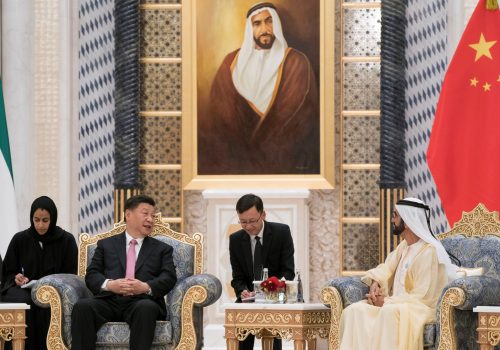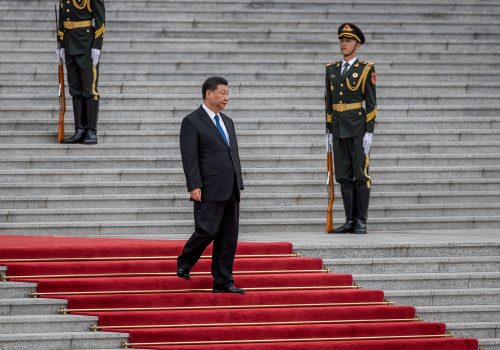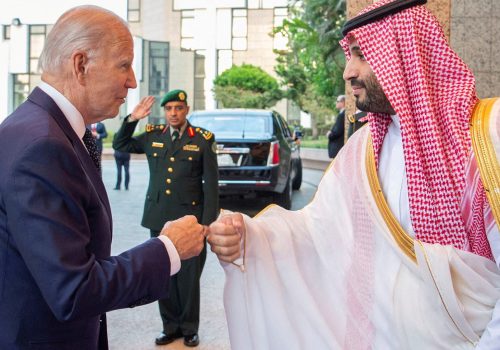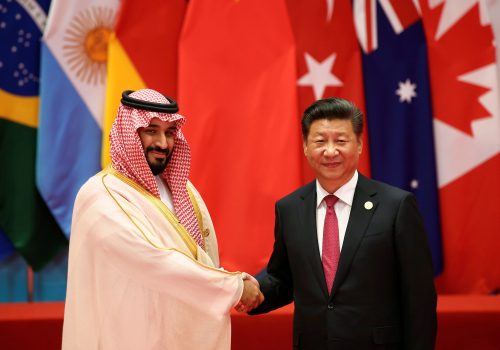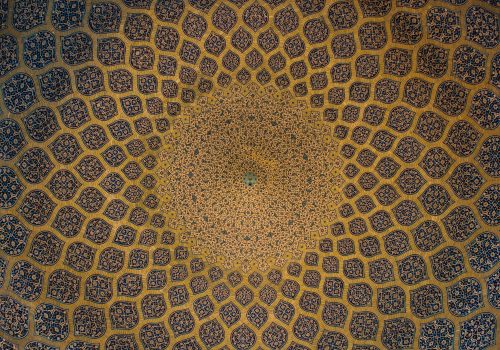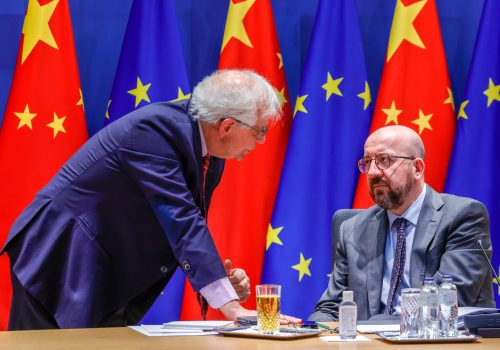Arab Barometer and Perceptions of China in MENA
SUBSCRIBE TO THE CHINA-MENA PODCAST ON THE APP OF YOUR CHOICE
Key takeaways
- The Arab Barometer, its functions, research, and goals
- Perceptions of China in the MENA region according to surveys
- The view of China from the Gulf region differs from other countries in the region
- The negative view of China by the people of Israel and Palestine
- The different opinions between the general public versus the elite
- The factors that influence foreigners’ perceptions of a country
Timestamps
[00:00] Introduction
[01:40] What is the Arab Barometer?
[02:55] Which countries have the Arab Barometer been looking at?
[04:41] How many people do you interview?
[05:42] What are the perceptions of China around the region?
[08:03] Could these perceptions of China change?
[12:34] A significant shift of opinion in a short period of time
[17:39] Different views of China in the Gulf region
[19:30] Negative perceptions of China in Israel
[23:48] Elite versus general public perceptions of China
[26:33] Explanation behind MENA countries with the highest and lowest support for China
[32:03] Palestinians do not support China despite aid from China
[35:28] Factors that affect a country’s positive or negative perceptions
[41:21] Links and Resources on data and research from Arab Barometer
In this episode
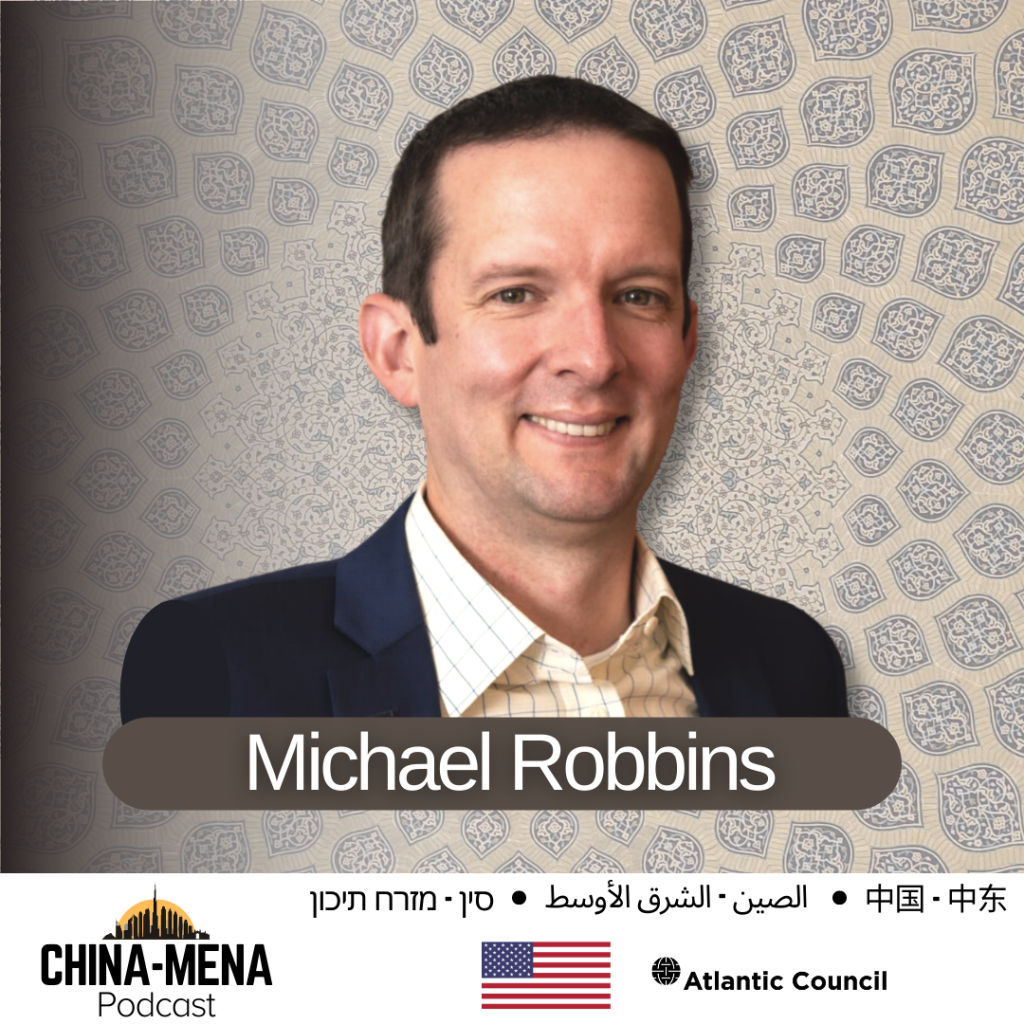
Michael Robbins
Director and Co-Principal Investigator
Arab Barometer
Michael Robbins is the director and co-principal investigator of Arab Barometer. He has been a part of the project since its inception and serving as director since 2014. He has led or overseen more than 100 surveys in international contexts and is a leading expert in survey methods on ensuring data quality. His work on Arab public opinion, political Islam and political parties has been published in Comparative Political Studies, the Journal of Conflict Resolution, the Journal of Democracy and Foreign Affairs. He received the American Political Science Association Aaron Wildavsky Award for the Best Dissertation in the field of Religion and Politics.
Ordinary citizens and residents across MENA tend to have different perspectives on China’s image in the region. Some are positive, while others are negative, and the general public’s perception is often different than that of the elites. To attempt to capture such varying perspectives, we discuss the general public’s opinion on China on a larger scale while employing the proper scientific techniques. The findings on the general public’s opinion on China come from nine nationally representative public opinion surveys conducted in MENA by Arab Barometer from 2021-2022 – including nearly 23,00 interviews.
In this podcast’s episode, we are joined by Michael Robbins, Director and Co-Principal Investigator of Arab Barometer, to discuss the region’s perception of China based on the Arab Barometer’s surveys, and the different perspectives of the general public versus the elite—as the latter tends to be more favorable toward Beijing. Arab Barometer is a nonpartisan research network that provides insight into the social, political, and economic attitudes and values of ordinary citizens across the Arab world. In the show, Michael also explains the Arab Barometer, its purpose, and how they conduct surveys and collect data.
The findings mentioned in this episode are primarily based on the Arab Barometer’s report, Public Views of the U.S.-China Competition in MENA, by Michael Robbins, Director and Co-Principal Investigator of Arab Barometer. The report concludes that China remains more popular than the US in MENA, but the gap may be shrinking as Beijing’s focus on economic engagement does not seem to be winning hearts and minds. China’s greater popularity may simply be due to the US unpopularity.
Hosted by
“We find that China remains relatively popular. We see that at least half or roughly half say that they have a positive view of China overall.”
About the China-MENA podcast
The China-MENA podcast features conversations with academics, think-tankers, and regional specialists on Chinese Influence in the Middle East and informs US and MENA audiences in the policy and business communities about the nature of China’s outreach to the region.
At a time when China’s global footprint is getting deeper and deeper, it has never been more important to understand its foreign policy and the Middle East is one of the world’s most consequential regions: home to major religions, diverse cultural and social heritage, central to global energy markets, and of course, geopolitics, linking people and markets in Asia, Africa and Europe. This show will help you understand what China is doing in the region, and how the region is engaging with China as an increasingly important external power.
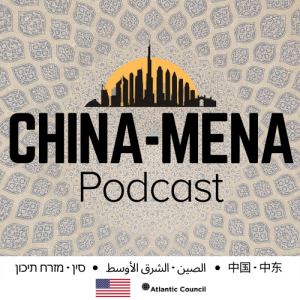
Podcast series
Listen to the latest episode of the China-MENA podcast, featuring conversations with academics, government leaders, and the policy community on China’s role in the Middle East.
Recommended reading

Through our Rafik Hariri Center for the Middle East and Scowcroft Middle East Security Initiative, the Atlantic Council works with allies and partners in Europe and the wider Middle East to protect US interests, build peace and security, and unlock the human potential of the region.
This podcast was funded in part by a grant from the United States Department of State. The opinions, findings, and conclusions stated herein are those of the author and do not necessarily reflect those of the United States Department of State.
Further reading
Wed, Aug 17, 2022
Managing US-China Competition: The View from Singapore
China-MENA Podcast By
Ambassador Bilahari Kausikan discusses the influence of the US-China Competition in the Southeast Asia region and much more!
Tue, Feb 15, 2022
Sino-Iranian relations
China-MENA Podcast By
Professor Anoushrivan Ehteshami joins the China-MENA podcast to discuss China-Iran relations and the state of the bilateral relationship.
Thu, Sep 29, 2022
China in MENA: An EU Perspective
MENASource By
Camille Lons joins us to discuss how Europeans and the EU see China as a rising global player in the geopolitics of the Middle East and North Africa.
Image: FILE PHOTO: Visitors stand in front of a giant screen displaying Chinese President Xi Jinping next to a flag of the Communist Party of China, at the Military Museum of the Chinese People's Revolution in Beijing, China October 8, 2022. REUTERS/Florence Lo








